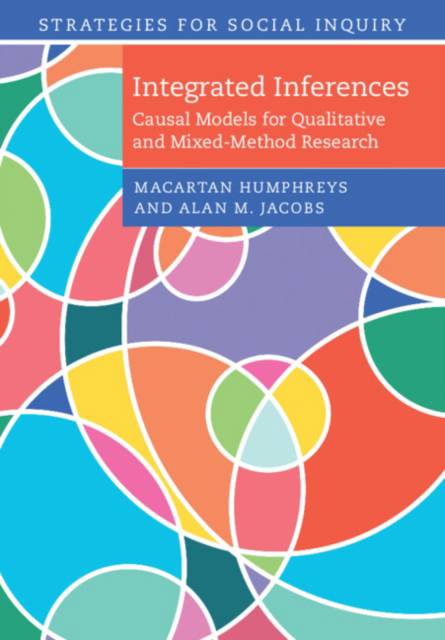
Door een staking bij bpost kan je online bestelling op dit moment iets langer onderweg zijn dan voorzien. Dringend iets nodig? Onze winkels ontvangen jou met open armen!
- Afhalen na 1 uur in een winkel met voorraad
- Gratis thuislevering in België vanaf € 30
- Ruim aanbod met 7 miljoen producten
Door een staking bij bpost kan je online bestelling op dit moment iets langer onderweg zijn dan voorzien. Dringend iets nodig? Onze winkels ontvangen jou met open armen!
- Afhalen na 1 uur in een winkel met voorraad
- Gratis thuislevering in België vanaf € 30
- Ruim aanbod met 7 miljoen producten
Zoeken
Integrated Inferences
Causal Models for Qualitative and Mixed-Method Research
Macartan Humphreys, Alan M Jacobs
€ 40,95
+ 81 punten
Uitvoering
Omschrijving
There is a growing consensus in the social sciences on the virtues of research strategies that combine quantitative with qualitative tools of inference. Integrated Inferences develops a framework for using causal models and Bayesian updating for qualitative and mixed-methods research. By making, updating, and querying causal models, researchers are able to integrate information from different data sources while connecting theory and empirics in a far more systematic and transparent manner than standard qualitative and quantitative approaches allow. This book provides an introduction to fundamental principles of causal inference and Bayesian updating and shows how these tools can be used to implement and justify inferences using within-case (process tracing) evidence, correlational patterns across many cases, or a mix of the two. The authors also demonstrate how causal models can guide research design, informing choices about which cases, observations, and mixes of methods will be most useful for addressing any given question.
Specificaties
Betrokkenen
- Auteur(s):
- Uitgeverij:
Inhoud
- Aantal bladzijden:
- 300
- Taal:
- Engels
- Reeks:
Eigenschappen
- Productcode (EAN):
- 9781316620663
- Verschijningsdatum:
- 30/11/2023
- Uitvoering:
- Paperback
- Formaat:
- Trade paperback (VS)
- Afmetingen:
- 170 mm x 244 mm
- Gewicht:
- 689 g

Alleen bij Standaard Boekhandel
+ 81 punten op je klantenkaart van Standaard Boekhandel
Beoordelingen
We publiceren alleen reviews die voldoen aan de voorwaarden voor reviews. Bekijk onze voorwaarden voor reviews.











